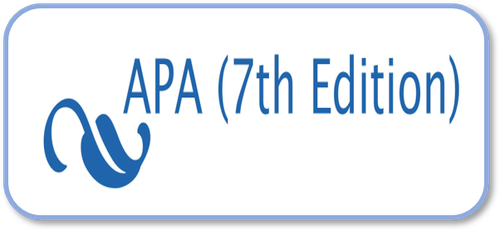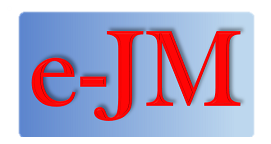The Effect Of Knowledge Management And Talent Management On Employee Performance
DOI:
https://doi.org/10.24912/jm.v26i1.837Abstract
The research objective is to see the impact of knowledge management and talent management on employee performance mediated by employee development. The sample of research is 225 employees who work in the field of information technology in the Jakarta area. Data analysis method using Structural Equation Model. The study showed that knowledge management and talent management have an impact on employee performance, the employee development variable is proven to be a mediation between knowledge management and employee performance, but the employee development variable cannot mediate between talent management and employee performance. Companies should provide knowledge management such as providing company web facilities as a place where employees can share their knowledge, and also develop talent management with training and development programs that will improve employee performance.
References
Alyoubi, B., Hoque, M. R., Alharbi, I., Alyoubi, A., and Almazmomi, N. (2018). Impact of Knowledge Management on Employee Work Performance: Evidence from Saudi Arabia. In The International Technology Management Review (Vol. 7, Issue 1).
Angliawati, R. Y., dan Maulyan, F. F. (2020). Peran Talent Management dalam Pembangunan SDM yang Unggul. In Jurnal Sain Manajemen (Vol. 2, Issue 2). http://ejurnal.ars.ac.id/index.php/jsm/index.
Awasthi, S., and Kumar, S. (2016). Need for Employee Development in Employee Performance: A Present Scenario Educonomics of Human Capital Investment View project. https://www.researchgate.net/publication/316664674.
Fajčíková, A., Fejfarová, M., and Urbancová, H. (2016). Employee development by talent management implementation Development of agricultural enterprises in the knowledge-based economy View project. https://www.researchgate.net/publication/316136586.
Ghalem, Â., Okar, C., Chroqui, R., and Alami, S.(2017). Performance:Aconcept to define! La performance: Unconcept à definer!Techniques. 1. https://doi.org/10.13140/RG.2.2.24800.28165.
Glazer, S., Mahoney, A. C., and Randall, Y. (2019). Employee development’s role in organizational commitment: a preliminary investigation comparing generation X and millennial employees. Industrial and Commercial Training, 51(1), 1–12. https://doi.org/10.1108/ICT-07-2018-0061.
Hariadi, A., Muhammad, D. P., Muhammad, N., Putra, R. (2020). Effect Of Talent Management And Knowledge Man-Agement On Company Reputation With Employee Per-Formance As An Intervening Variable: Case Study Of Employees At PT TASPEN (PERSERO). In The International Journal of Organizational Innovation (Vol. 13, Issue 2).
Hasbi, A. (2020). Pengaruh Knowledge Management terhadap Pengembangan Sumber Daya Manusia dan Kinerja Karyawan Perhotelan di Sulawesi Selatan. Jurnal Kawistara, 10(2), 199. https://doi.org/10.22146/kawistara.56756.
Jangbahadur, U., and Sharma, V. (2018). Measuring Employee Development. Global Business Review, 19(2), 455–476. https://doi.org/10.1177/0972150917713548.
Jayathilake, H. D., Daud, D., Eaw, H. C., and Annuar, N. (2021). Employee development and retention of Generation-Z employees in the post-COVID-19 workplace: a conceptual framework. Benchmarking, 28(7), 2343–2364. https://doi.org/10.1108/BIJ-06-2020-0311.
Kaleem, M. (2019). The Influence of Talent Management on Performance of Employee in Public Sector Institutions of the UAE. Public Administration Research, 8(2), 8. https://doi.org/10.5539/par.v8n2p8.
Mahmudi, R. K., and Monavvar, M. S. (2016). Effect Of Knowledge Management On Employees’ Performance Improvement (Vol. 7). www.iioab.org.
Mensah, J. K. (2015). A “coalesced framework” of talent management and employee performance: For further research and practice. International Journal of Productivity and Performance Management, 64(4), 544–566. https://doi.org/10.1108/IJPPM-07-2014-0100.
Obaidat, H., and Otair, M. A. (2018). The Impact of Knowledge Management on the Function of Employee Performance Appraisals in Industrial Companies - Case Study. International Journal of Managing Information Technology, 10(4), 35–52. https://doi.org/10.5121/ijmit.2018.10403.
Ogbu, E. F., and Dialoke, I. (2017). TALENT MANAGEMENT AND WORKERS’ EFFECTIVENESS OF SELECTED HOTELS IN RIVERS STATE. http://www.publishingindia.com.
Pradhan, R. K., & Jena, L. K. (2017). Employee Performance at Workplace: Conceptual Model and Empirical Validation. Business Perspectives and Research, 5(1), 69–85. https://doi.org/10.1177/2278533716671630.
Rahajeng. (2021). Babak Baru Dunia Usaha Pasca Pandemi Covid-19.
Soe, K. N. N., and Aye, A. C. (2020). The Mediating Role of Job Satisfaction on The Relationship between Knowledge Management Practices and Employee Work Performance: The Private Banking Case in Myanmar. In TNI Journal of Business Administration and Languages (Vol. 8, Issue 2).
Urbancová, H., and Vnoučková, L. (2018). Impact of employee development in agricultural companies on commitment, loyalty and performance. Acta Universitatis Agriculturae et Silviculturae Mendelianae Brunensis, 66(3), 803–811. https://doi.org/10.11118/actaun201866030803.
Zaim, H., Keceli, Y., Jaradat, A., and Kastrati, S. (2018). The effects of knowledge management processes on human resource management: Mediating role of knowledge utilization. Journal of Science and Technology Policy Management, 9(3), 310–328. https://doi.org/10.1108/JSTPM-02-2018-0011.
Downloads
Published
How to Cite
Issue
Section
License

This work is licensed under a Creative Commons Attribution-NonCommercial-ShareAlike 4.0 International License.
This journal provides immediate open access to its content on the principle that making research freely available to the public supports a greater global exchange of knowledge.

This work is licensed under a Creative Commons Attribution-NonCommercial-ShareAlike 4.0 International License



















